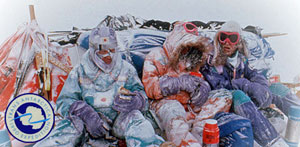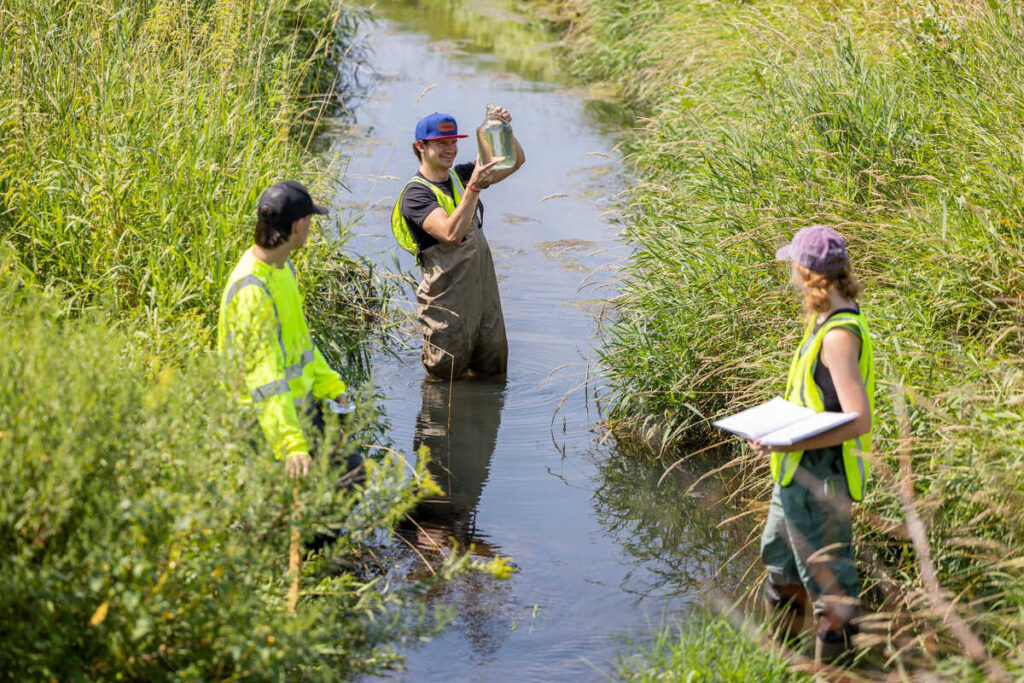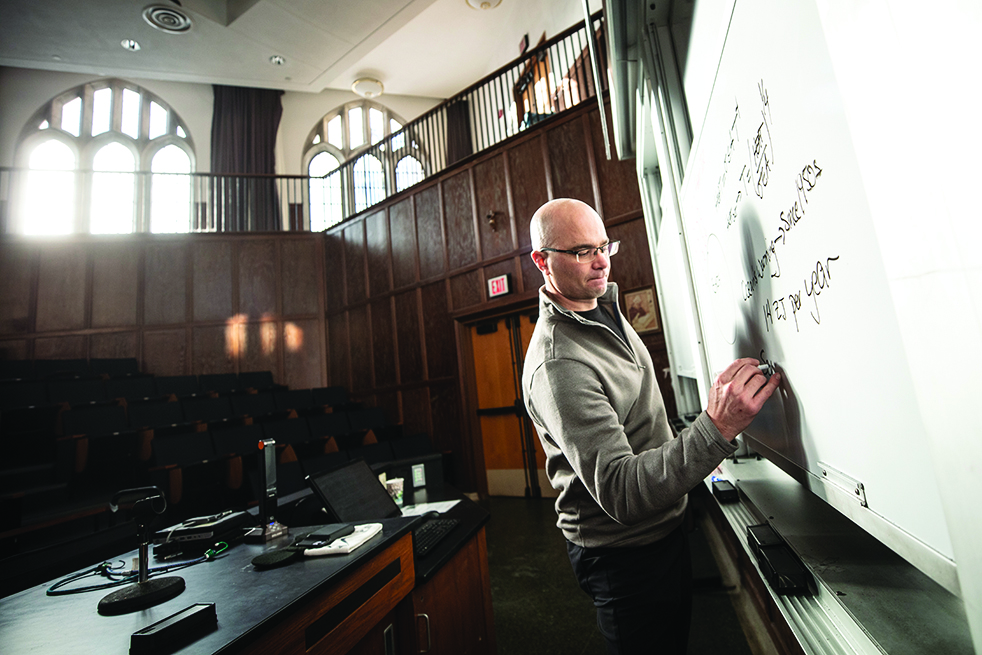Will Steger, one of the nation’s best-known explorers and a University of St. Thomas graduate, will share what he has learned as an “Eyewitness to Global Warming” at 8 p.m. Monday, April 16, in Woulfe Alumni Hall in the Anderson Student Center on the university’s St. Paul campus.
The lecture, free and open to the public, is sponsored by the University Lectures Committee and is part of St. Thomas’ Earth Week events that will run April 14 to 22.
Best-known for his polar expeditions, Steger has explored tens of thousands of miles of the Arctic and Antarctic by kayak, canoe sled and dog sled over the past 45 years. Throughout those years he witnessed and chronicled changes taking place in the earth’s polar regions, and has been educating people on how those changes are affecting the wildlife and humans that live there.
He is the author of four books on the environment and his polar adventures. In Saving the Earth, published 22 years ago, he began writing about the threat of global warming at a time when the concept was significantly more controversial than it is today.
“As the 2oth century winds down, global warming – and the greenhouse effect’s role in it – promises to be one of the most controversial, and potentially most disastrous, environmental problems the world faces in the century to come,” he wrote in his 1990 Saving the Earth.
“Over the past 25 years,” he wrote, “I’ve watched the north and the people who live there change inalterably. I’ve seen the wilderness shrink and become more polluted. I’ve seen the lifestyle of the natives change from a dependence on nature to a reliance on government.
“That’s one of the reasons I went to Antarctica, to draw attention to one of the last remaining frontiers. My fervent hope is that the future does not hold the same end for the south, that humankind’s role in Antarctica will be that of protector, not despoiler."
Steger’s lifetime of dangerous and grueling expeditions include the first confirmed dog-sled journey to the North Pole without resupply (1986); the 1,600-mile south-north traverse of Greenland, which was the longest unsupported dog-sled expedition in history (1988); the first dog-sled traverse of Antarctica, a 3,741-mile expedition that took seven months (1989 and 1990); and the first dog-sled traverse of the Arctic Ocean in one season from Russia to Canada (1995).
Steger, who holds a 1966 bachelor’s degree in geology and a 1969 master’s in education from St. Thomas, has many close ties with his alma mater.
An autographed St. Thomas banner that he carried on his historic first expedition to the North Pole in 1986 is now part of the university’s Archive’s collection.
He was just miles from completing his expedition across Antarctica on March 10, 1990, when it was announced at St. Thomas Day that he had won the Alumni Association’s Distinguished Alumnus Award. The explorer first learned of the award when he finished the 221-day journey at Mirnyy, Antarctica. While loading dogs and crew members aboard the ship that would take them home, Steger took time to write and send this telegram:
“To Students of St. Thomas:
“The 1990s will be a decade of global change, demanding a new way of thinking and a renewed commitment to action. For the first time in history, there is hope for world peace. And yet the planet is threatened by an imminent environmental disaster. Your generation must reverse the tide of destruction and strive to preserve the future.
“As I learned anew in crossing Antarctica, the only limit to achievement is the limit you place on your own dreams. As you seek your own way in the world, look beyond personal gain to your responsibility as God’s stewards of the Earth.
“Let your vision be guided by hope, your path be adventurous, and the power of your thoughts be directed toward the betterment of tomorrow. Thank you for your faith in me. From Antarctica, our best regards. Will Steger and the members of the International Trans-Antarctica Expedition.”
Steger has been the grand marshal of a St. Thomas homecoming parade, has received an honorary doctorate from St. Thomas, has spoken at graduation exercises and an Alumni Association’s First Friday luncheon, and when he helped launch the University of St. Thomas World School for Adventure Learning in 1993, he was named a distinguished fellow in environmental education.
Steger was a pioneer in combining exploration and technology; more than 20 million students followed his 1995 International Arctic project via online daily journal entries and the first-ever transmission of a digital photograph from the North Pole.
That year he joined Amelia Earhart, Robert Peary and Roald Amundsen in receiving the National Geographic Society’s John Oliver La Gorce Medal for “accomplishments in geographic exploration in the sciences and public service to advance international understanding.”
In 1996 he became in the National Geographic Society’s first Explorer in Residence; in 1997 he received the Explorers Club’s Finn Ronne Memorial Award; in 2006 he joined Jacques-Yves Cousteau, Thor Heyerdahl and Neil Armstrong in receiving the Lindbergh Award; and in 2007 he received the National Geographic Lifetime Achievement Award for his work on climate change.
More recently, he formed the Will Steger Foundation, which works to solve global warming.
“I have never seen such drastic changes in the Arctic as quickly as I have in the last five years,” Steger wrote in the fall 2008 issue of St. Thomas magazine. “Every ice shelf I have crossed by dogsled, foot or skis has now disintegrated into the ocean.
“Early in 2007, I returned to Baffin Island in the Canadian Arctic via dogsled with three educators and three Inuit hunters who would be our eyes and ears to help document the changes that global warming is having on their culture and the Arctic.
“As our group visited remote Inuit communities along the way, we heard over and over again about concerns they have about the changing Arctic environment. We heard much evidence of this change, of new species migrating north, of warming oceans and melting sea ice, and of the impact this has had on the delicately balanced Arctic ecosystem. We also learned about the Inuit spirit of resiliency and adaptation.
“When asked about Inuit cultural survival in the face of global warming, we heard the same reply: The Inuit will continue to adapt as they always have. The question many Inuit asked us in return was simple – can the people of the south adapt?”








